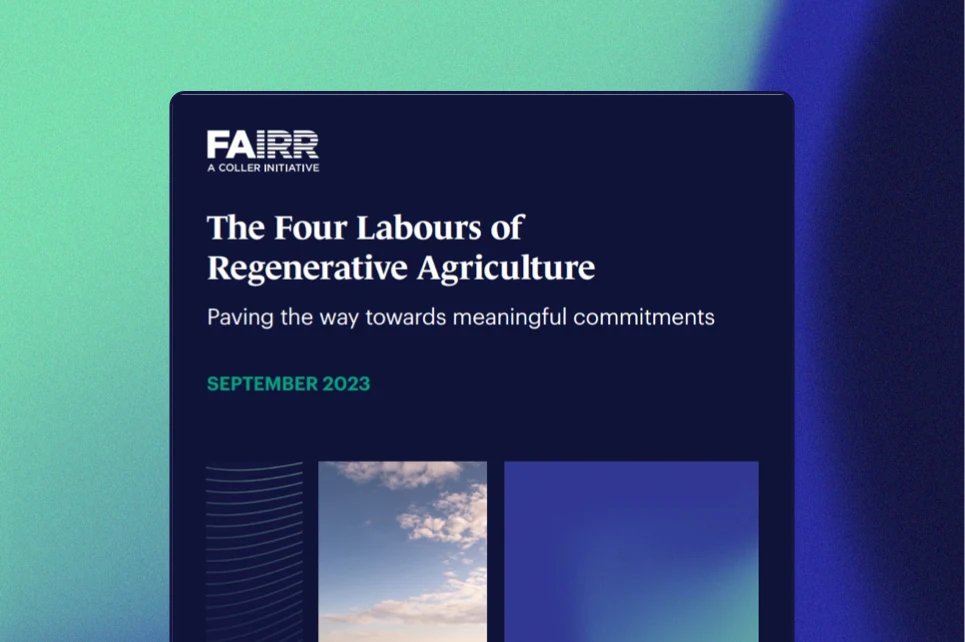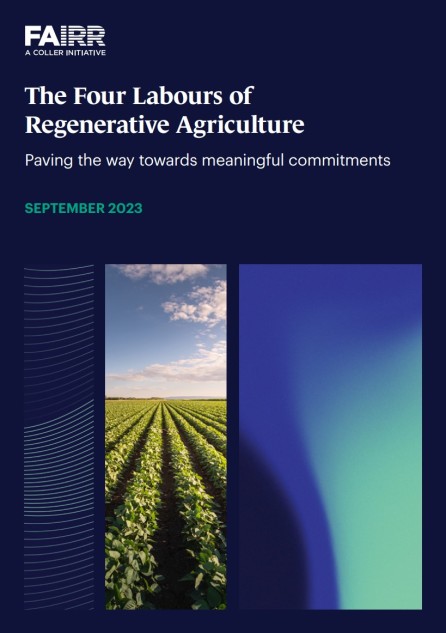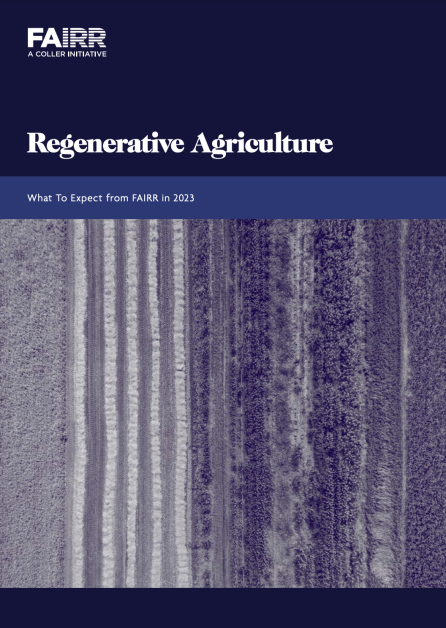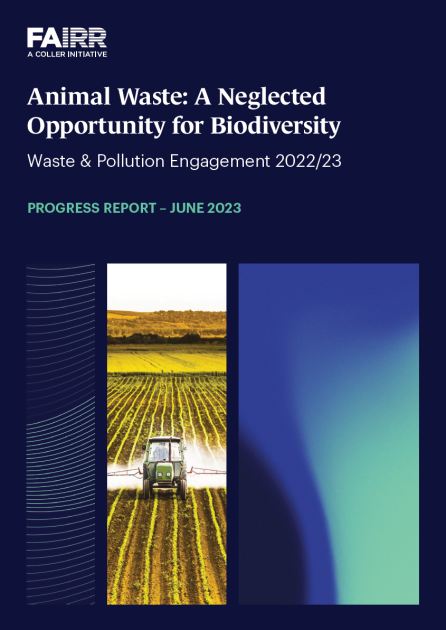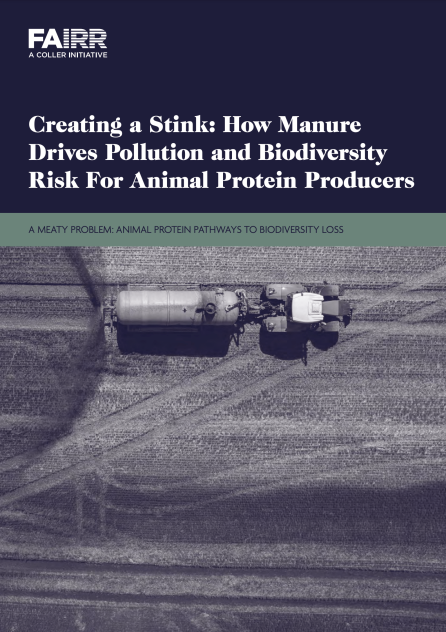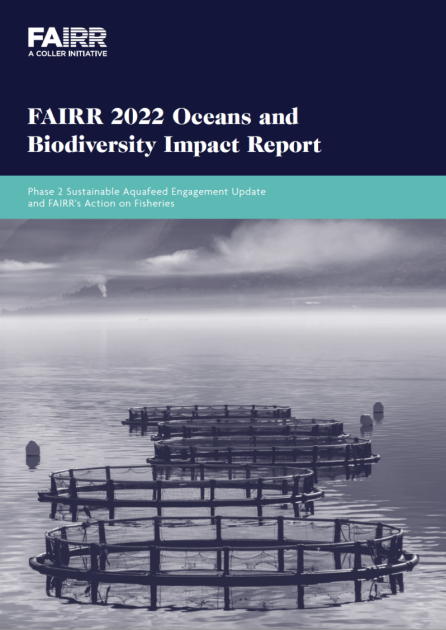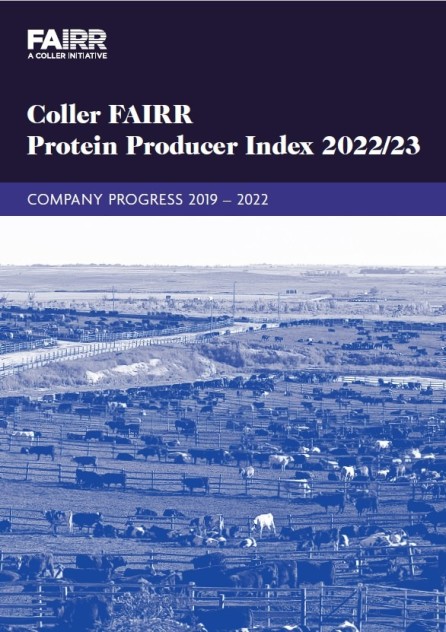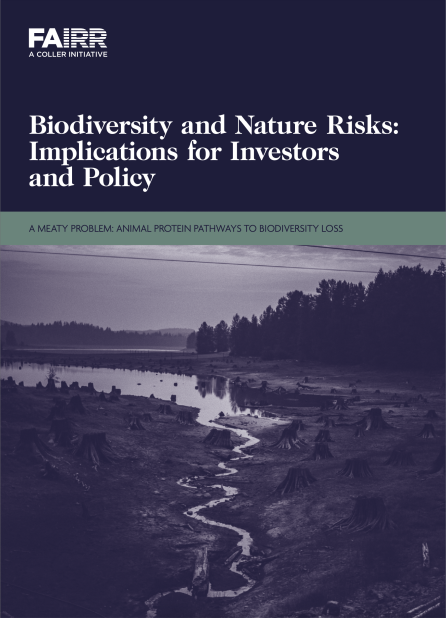
Regenerative Agriculture
Overview
Regenerative agriculture is gaining in popularity within the agri-food sector as a way to bolster farmland ecosystems, meet climate goals through carbon reduction and sequestration and respond to the biodiversity targets set out in the Montreal-Kunming Global Biodiversity Framework.
Investors whose own climate and nature goals depend on the actions of their holdings are faced with a difficult task. They must judge whether companies engaged in regenerative agriculture have the right ambition, the correct foundations to achieve sustainability goals, and, most importantly, if they are fully supporting and incentivising farmers to adopt regenerative practices in their supply chains. FAIRR seeks to address these challenges around regenerative agriculture and provide confidence to investors about its benefits and limitations.
FAIRR’s work on this topic has already begun, and some key results from our assessment of 79 food-sector companies are outlined in our latest report on regenerative agriculture.

Highlights from our assessment
Nearly 63% of the 79 agri-food companies assessed by FAIRR mention regenerative agriculture as a part of their sustainability strategies.
The companies with regenerative agriculture in their sustainability disclosures jointly control or influence around a third of the agri-food sector’s $9 trillion revenue.
74% of those companies cite “improved soil health”, a core tenet of regenerative agriculture, as an expected outcome from regenerative agriculture programmes. However, discrepancies between nature-related, socio-economic, and practice-related outcomes remain visible.
Just 36% of those companies have quantified targets for regenerative agriculture. The rest either focus on pilot projects or general statements of intent, raising concerns about delivering positive outcomes and potential risks of greenwashing.
Only 8% of those companies have financial commitments in place to support farmers in their supply chain to incentivise the uptake of regenerative agriculture.
Investors whose own climate and biodiversity goals depend on portfolio companies are critical to driving the development of outcome-based disclosure frameworks and metrics to fully harness the potential of regenerative agricultural strategies through support and engagement.
